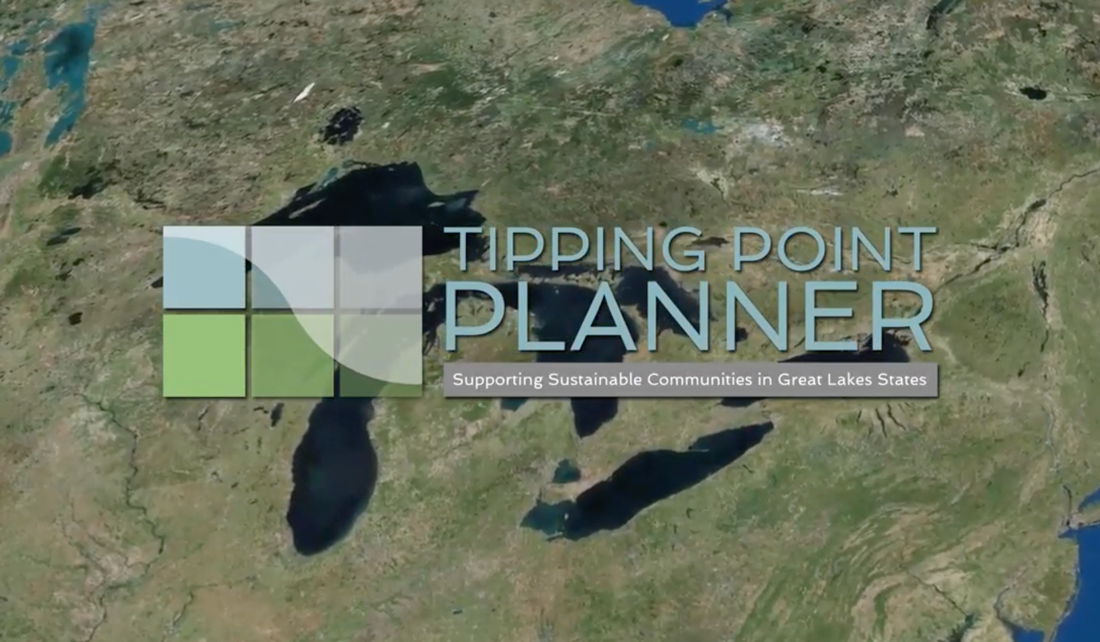
Community planners need a tool to help them incorporate local water quality into development plans and land use decisions. This is exactly why Illinois-Indiana Sea Grant’s sustainable community planning team developed the Tipping Point Planner with Purdue University and partners. ESRI (Environmental Systems Research Institute) has highlighted the program with an article in their latest issue of ArcNews: With GIS, Communities See How Land-Use Changes May Affect Local Water Quality. Below is an excerpt:
Nutrient reduction in bodies of water is a critical goal for communities in the United States, particularly in northern states that border the Great Lakes, where nutrient loads—high concentrations of pollutants like nitrogen and phosphorus—threaten the health of rivers, tributaries, inland lakes, and bays. Communities often need to know the quality status of their watersheds and how development plans might affect that. Many questions arise during the planning process, such as the following:
- Are current nutrient loads impairing surface water quality?
- If we develop a particular site, would our streams or other bodies of surface water cross a critical threshold where they change from a healthy state to impaired?
- What mitigation management strategies are the most cost-effective?
To answer these questions, communities need science-based tools that link planning decisions to water quality. These tools need to be established within a framework that involves community organizations, natural resource experts, scientists, extension specialists from land- and sea-grant universities, and concerned citizens.
Read the full article in ESRI’s Winter 2020 issue of ArcNews: https://www.esri.com/about/newsroom/arcnews/with-gis-communities-see-how-land-use-changes-may-affect-local-water-quality/.
Download the PDF (pages 28-29): https://www.esri.com/content/dam/esrisites/en-us/newsroom/arcnews/arcnews-winter-2020.pdf
Illinois-Indiana Sea Grant is a part of University of Illinois Extension and Purdue Extension.

